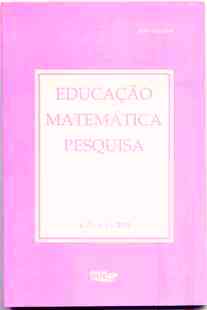Paths to the Present
Keywords:
reforma, currículo, matemática unificada, comunidade de educação matemática, nova matemática, pressões sociais, efeitos inesperados.Abstract
Reforma pode ser uma palavra muito forte para caracterizar algum desenvolvimento em Educação Matemática nos Estados Unidos, por volta do século XX até o início do terceiro milênio. A matemática escolar tem mudado continuamente (especialmente em termos de decisões que têm sido tomadas em resposta às mudanças observadas na população escolar), mas mudança não pode ser confundida com reforma. A forma básica da matemática escolar persiste como era no final do século XIX. Mesmo tentativas substanciais para unificar o currículo de matemática no início dos anos 1900 e para modernizá-lo nas décadas de 50 e 60 produziram somente mudanças superficiais, temporárias ou localizadas. A retórica de reforma tende a mostrar diferenças importantes entre os reformadores, e tentativas de implementação da reforma ignoraram largamente o contexto social amplo, político e econômico. Como em 1995, quando este artigo foi publicado pela primeira vez, não estava claro que os reformadores do movimento padrão do final do século XX teriam mais sucesso que seus antecessores. Abstract Reform may be too strong a word to characterize any developments in mathematics education in the United States from the turn of the twentieth century to the beginning of the third millennium. School mathematics has continually changed (especially in terms of decisions that have been made in response to perceived changes in the school population), but change should not be confused with reform. The basic form of school mathematics remains much like what is was at the end of the nineteenth century. Even substantial attempts to unify the mathematics curriculum in the early 1900s and to modernize it in the 1950s and 1960s yielded only surface, temporary, or localized changes. The rhetoric of reform tends to paper over important differences among reformers, and attempts to implement reform have largely ignored the wider social, political, and economic context. As of 1995, when this article was first published, it was not clear that reformers in the standards movement of the late twentieth century would be any more successful than their forebears. Key-words: reform; curriculum; unified mathematics; mathematics education community; new math.; societal pressures; unintended effects.Metrics
Downloads
Published
How to Cite
Issue
Section
License
Authors who publish in EMP agree to the following terms:
- Attribution — You must give appropriate credit, provide a link to the license, and indicate if changes were made. You may do so in any reasonable manner, but not in any way that suggests the licensor endorses you or your use.
- NonCommercial — You may not use the material for commercial purposes.
- NoDerivatives — If you remix, transform, or build upon the material, you may not distribute the modified material.














